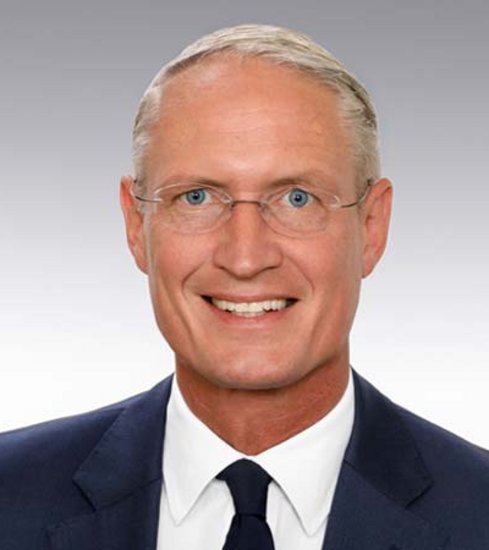As funding activity becomes more and more widespread in both arbitration and litigation, various jurisdictions and arbitral institutions are introducing regulations to address the risks posed by this evolving practice. The use of third-party funding (TPF) in private arbitration, where arbitrators are party-appointed, has given rise to a series of ethical and procedural dilemmas. These challenges include conflicts of interest, the undue influence of funders on arbitration strategies, and the transparency of funding arrangements.
Risks and challenges
While TPF plays a vital role as an alternative for financing costly arbitration proceedings, it also introduces risks and challenges that have sparked considerable global debate.1 A primary concern centers on the involvement of a founder, which can create conflicts of interest for arbitrators and potentially undermine the efficiency and integrity of the arbitration process. Arbitrator's independence and impartiality may be called into question, leading to delays, disruptions in the proceedings, and escalating costs.2
As an example, consider a situation where an arbitrator holds a financial interest in a funder, such as owning shares in a publicly traded TPF corporation3, or an arbitrator who is frequently appointed by claimants in multiple arbitrations funded by the same third-party funder.4
A noteworthy case highlighting these challenges is the failed attempt to disqualify Philippe Sands KC from acting as arbitrator in a $408 million claim, as reported by Global Arbitration Review. The claimant, Silver Bull, sought to remove Mr. Sands based on comments he had previously made, expressing “serious concerns” about TPF in investment arbitration. Silver Bull argued that these statements evidenced bias against parties relying on TPF. However, Mr. Sand’s co-panelists ultimately concluded that his remarks did not reflect pre-judgment or bias against claimants utilizing TPF arrangements.5
This case underscores the importance of disclosure in ensuring the objectivity of arbitrators, enabling parties to identify potential conflicts of interest. Nevertheless, it may also support concerns that disclosing funding relationships could lead to frivolous arbitrator challenges and demands for security costs, potentially delaying proceedings and inflating costs.
Despite these concerns, there appears to be an emerging consensus in favor of mandatory disclosure, as it mitigates potential conflicts.6
Disclosure of TPF in practice: rules, jurisdictions, guidelines
As an example, a 2015 study conducted by Queen Mary University of London and White & Case LLP identified London, Paris, Hong Kong, Singapore, and Geneva as the most preferred arbitration seats. The same study revealed that 71% of arbitration stakeholders believe TPF requires regulation, with disclosure being the primary concern. This finding underscores a strong demand from potential users of these key arbitration seats for legal frameworks addressing TPF, particularly with respect to disclosure. Consequently, leading arbitration hubs must adapt to the rise of TPF to maintain their global competitiveness.
Let us now examine how different rules, jurisdictions, and guidelines govern the disclosure of TPF.7
International Chambre of Commerce Rules (ICC Rules)
Reflecting the increasing emphasis on transparency in international arbitration, Article 11(7) of the 2021 ICC Rules requires parties to disclose the existence and identity of “any non-party which has entered into an arrangement for the funding of claims or defences and under which it has an economic interest in the outcome of the arbitration”.8
Singapore International Arbitration Centre Rules (SIAC Rules)
The 7th Edition of SIAC Rules, effective 1 January 2025, provides a recent example of an institution introducing a compulsory TPF disclosure.9 Rule 38 compels parties to disclose any third-party funding agreements and the funder's identity in key documents, such as the Notice of Arbitration. Tribunals are also authorized to request additional details about the funder's interest in the case and their liability for costs, which may influence cost allocations.10
Hong Kong International Arbitration Centre Rules (HKIAC Rules)
Similarly, Article 44 of the HKIAC Rules obliges the funded party to notify all relevant parties, including the arbitral tribunal, any emergency arbitrator, and the HKIAC, of the existence of a funding agreement and the identity of the third-party funder. This notification must occur either at the start of arbitration or shortly after a funding agreement is finalized, with any subsequent changes disclosed promptly.11
Vienna International Arbitral Centre Rules of Arbitration and Mediation (VIAC Rules)
The 2021 VIAC Rules adopt a comparable approach, requiring parties to disclose the existence of any TPF arrangement and the funder’s identity in either the statement of claim or response, or immediately upon entering a funding arrangement.
Other institutions
While several institutions recognize the importance of TPF disclosure, others remain hesitant to adopt such regulations. For instance, the LCIA rules, Swiss Rules of International Arbitration do not address TPF disclosure, reflecting concerns that stringent rules might stifle growth in the industry.12
National arbitration frameworks
In Singapore, the scope of TPF was expanded to include proceedings before the Singapore International Commercial Court (SICC), provided such proceedings remain under the SICC. Furthermore, lawyers registered to practice in Singapore are required to disclose the existence of any TPF their client is receiving in arbitration or SICC proceeding.13
In Hong Kong, funded parties must disclose the funding agreement and the identity of third-party funder to all relevant parties and the arbitration body. Additionally, Hong Kong has introduced a Code of Practice for Third-Party Funding of Arbitration, which outlines funders’ obligations, including disclosure requirements. Although the Code is not legally binding, non-compliance could influence the tribunal's decisions.14
By contrast, there is no statutory requirement to disclose the existence of TPF in arbitration proceedings seated in England, as the Arbitration Act 1996 does not address the matter. Similarly, Franch law imposes no restrictions on TPF, although the Paris Bar Council adopted a resolution on 21 February 2021 requiring counsel to encourage their clients to disclose details of TPF arrangements to the arbitral tribunal.15
Guidelines
Despite the lack of mandatory disclosure regulations in certain jurisdictions, the importance of transparency in TPF arrangements is widely recognized within the international arbitration community. The IBA Guidelines on Conflicts of Interest in International Arbitration, while non-binding, advocate for disclosure as a means of safeguarding the independence and impartiality of the arbitral tribunal. These guidelines are considered a reflection of good and established international practice, offering a framework to mitigate potential challenges arising from undisclosed TPF.16
Striking a balance in TPF regulation
Several objections to the obligation of disclosure have been raised, with critics questioning its necessity and potential repercussions. Some argue that TPF arrangements are private contractual relationships that should remain outside the scope of regulatory oversight, as they lie beyond the tribunal’s jurisdiction. Additionally, critics warn that disclosure could introduce procedural inefficiencies, allowing respondents to exploit information to stall proceedings and raise costs for claimants. There is also apprehension that disclosure might unfairly influence tribunals, leading to adverse decisions on cost allocation or security for costs.17
While some stakeholders call for broader disclosure requirements, such as revealing the full terms of litigation funding agreement, this approach presents potential drawbacks. Disclosing such details could inadvertently expose strategic insight, including a funder’s assessment of a case’s strengths and weaknesses, potentially disadvantaging the funded party. Recognizing these concerns, arbitral institutions have generally opted for a more balanced approach, requiring only the disclosure of a funder’s existence and identity. This strikes a compromise between ensuring transparency and preserving confidentiality.18
As the debate over TPF and its disclosure continues to evolve, it is clear that the landscape of international arbitration is undergoing a significant change. As James Hope of Vinge, Stockholm, aptly observed: “Once upon a time, arbitration was praised for its confidentiality. But modern trends are in favour of transparency and openness.”19
Ressources
- C. Dos Santos, "Third-party funding in international commercial arbitration: a wolf in sheep’s clothing?', in Matthias Scherer (ed), ASA Bulletin, (© Association Suisse de l'Arbitrage; Kluwer Law International 2017, Volume 35 Issue 4) 918
- ibid, 923
- ibid, 924
- A. Okubote, “Transparency and third-party funding” (International Bar Association)
- Cleary Gottlieb Steen & Hamilton LLP, “International Arbitration Trends and Topics for 2025” (Cleary Gottlieb, January 6, 2025) https://www.clearygottlieb.com/-/media/files/alert-memos-2025/international-arbitration-trends-and-topics-for-2025.pdf
- A. Okubote (n iv)
- C. Dos Santos (n i)
- J. Barnett, L. Macedo, J. Henze (Nivation AG), “ Third-Party Funding Finds its Place in the New ICC Rules” (Kluwer Arbitration Blog, January 5, 2021) https://arbitrationblog.kluwerarbitration.com/2021/01/05/third-party-funding-finds-its-place-in-the-new-icc-rules/
- A. Kishore, S. Lee, M. Ng, J. Lim, “Singapore: SIAC Rules 2025 (7th Edition) - steps to further strengthen institutional arbitration” (Bird&Bird, January 14, 2025)
- DLA PIPER, “Understanding the SIAC Arbitration Rules 2025” (January 16, 2025)
- HKIAC Administered Arbitration Rules 2018, Art. 44.
- C. Dos Santos (n i)
- K. Phillips, K. Chung, L. Lim, W. Yan Yee, “Commercial Arbitration: Singapore” (Global Arbitration Review, April 11, 2024)
- D. Alhouti, " Disclosing Third-Party Funding in International Arbitration: Where Are We Now?" (Charles Russell Speechlys, November 29, 2022) https://www.charlesrussellspeechlys.com/en/insights/expert-insights/litigation--dispute-resolution/2022/disclosure-obligations-and-third-party-funding/
- Munoz, S. Willaume, A. Westphalen, S. Matamoros, A. Rempp, “Commercial Arbitration: France" (Global Arbitration Review, March 22, 2024) https://globalarbitrationreview.com/insight/know-how/commercial-arbitration/report/france#5C95A81615698205B672D24E9B8A3320A24BE93D
- C. Dos Santos (n i)
- S. E. Moseley, Note, Disclosing Third-Party Funding in International Investment Arbitration, 97 TEX. L. REV. 1194
- J. Barnett, L. Macedo, J. Henze (Nivalion AG) (n viii)
- A. Okubote (n iv)

